Nucleom provides a wide range of conventional as well as advanced NDT solutions to perform petrochemical inspection. For in-service or out-of-service systems, our NDE technicians are using the latest technologies and tools to provide comprehensive results with a high standard of safety and reliability.
Petrochemical plants infrastructures like pipelines, storage tanks, pressure vessels etc., require high maintenance and regular integrity inspections.
Whatever its origin or type, corrosion represents one of the biggest challenges facing refineries. Its detection and characterisation are very important to ensure any component integrity and life cycle.
Corrosion may be internal or external and its mechanism may vary according to the interaction with the external condition or with the contained product. Naphthenic acid corrosion, sour water corrosion, hydrogen induced cracking (HIC) and sulphide stress cracking (SSC), are among the most frequent material degradations found in refineries.
The choice of the best NDT methodology to detect the corrosion depends on its type and location, the access to the area of interest and the project requirements. Consequently, Nucleom offers conventional and advanced UT techniques (PAUT, GW etc.), Pulsed Eddy Current, Radiography, Magnetic Flux Leakage (MFL) or 3D laser scanning and combines two or many technologies, if appropriate.
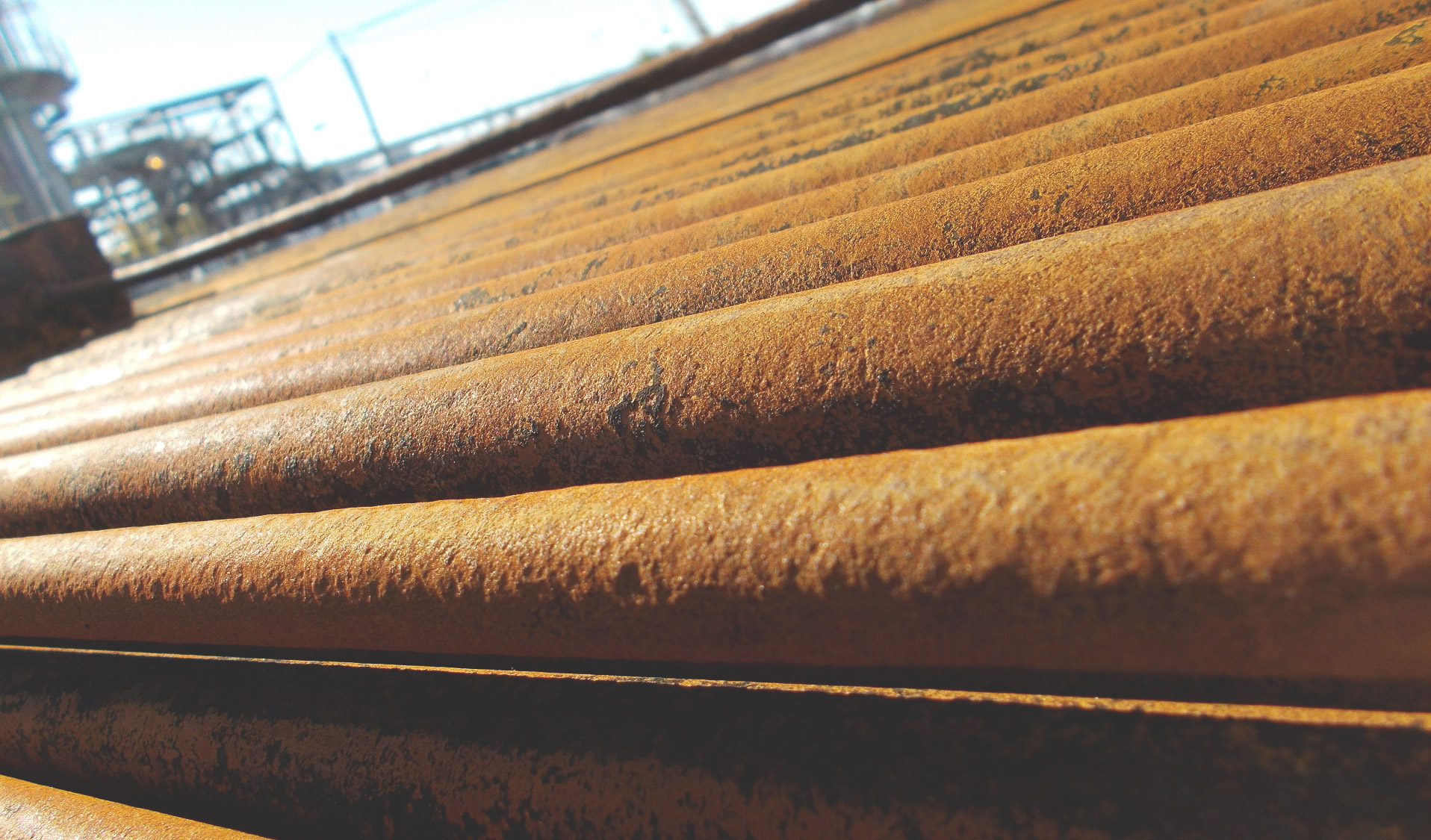
CUI is any type of corrosion that occurs due to moisture present on the external surface of insulated equipment. Moisture may be external or may be present in insulation.
Intruding water is the key problem in CUI and the degradation mechanism can be different depending of multiple factors like temperature, humidity, etc. The most common types of CUI are galvanic, chloride, acidic or alkaline corrosion. Moreover, CUI can occur in equipment that is in service, out of service or in cyclic service.
Nucleom provides CUI inspection and characterisation solutions using Pulsed Eddy Current (PEC) and/or Radiography and not requiring insulation removal.
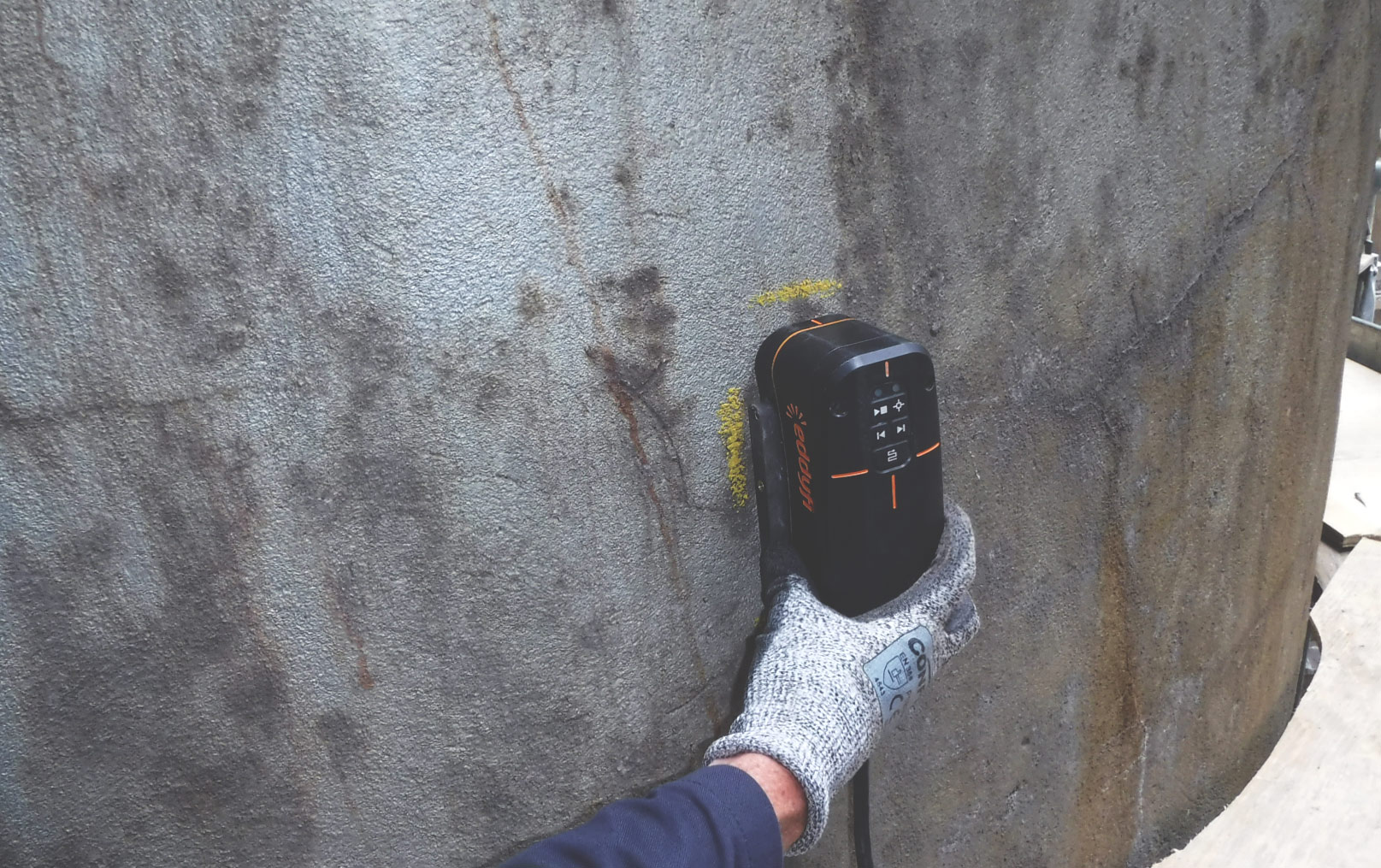
From pressure vessels and storage tanks to strippers and pipelines, welding is still the most used fabrication and repair process. In oil and gas industry, challenges consist of ensuring welded components reliability and integrity and limiting unplanned interruptions and shutdowns. Thus, weld inspection is a key process stage that should be adapted and optimized according to project specifications.
Nucleom provides automated inspections and advanced tools and software and offers engineering and consulting services such as systems integration and procedure development.
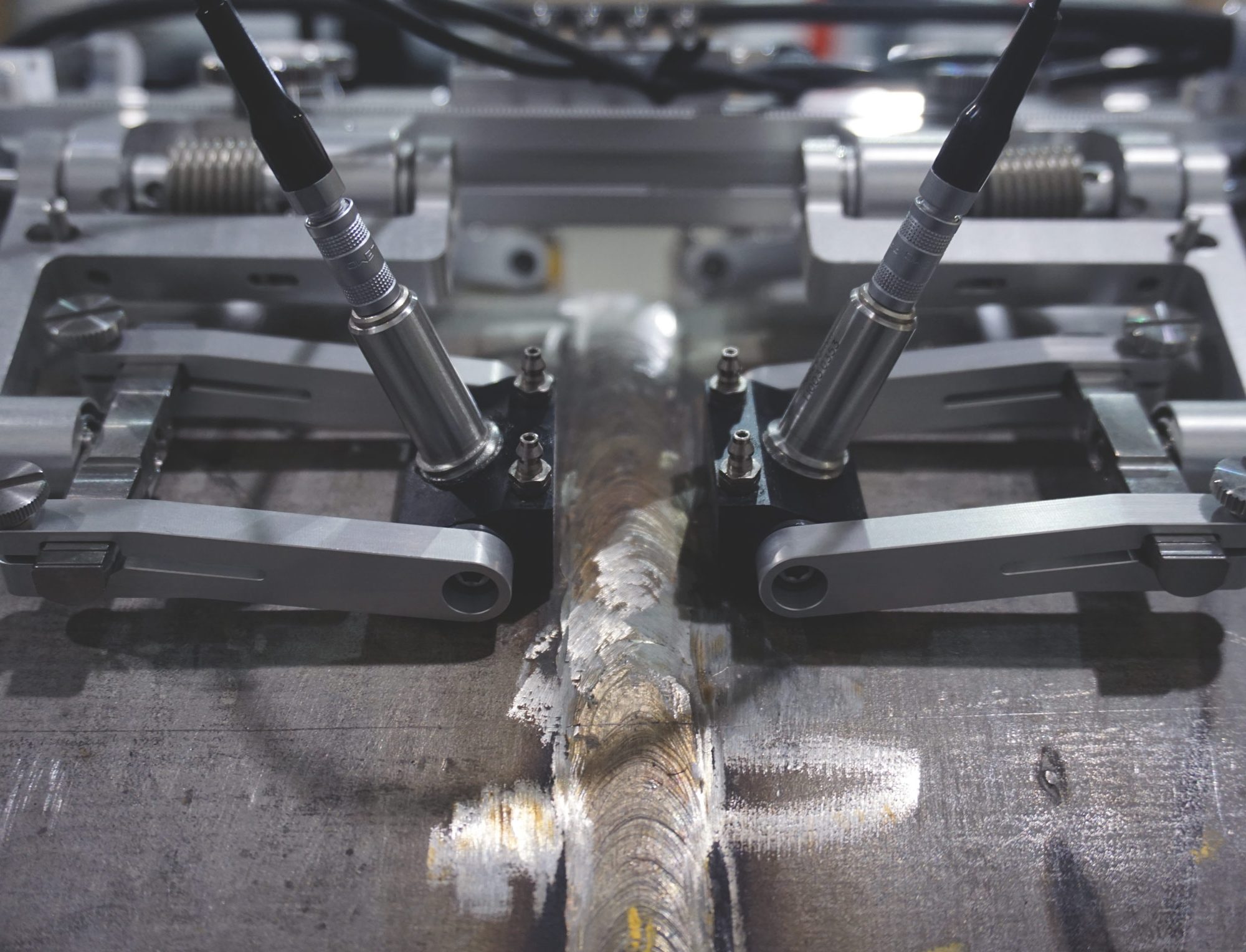
Proactive NDT inspections reduce downtime and unexpected repair costs.
There are hundreds of kilometers of tubes in any refining/petrochemical plant. Tubes are part of vital components such as heat exchangers, condensers, fin-fans, etc. and their degradation (corrosion, cracking, pitting, thinning, etc.) can significantly affect the production and causes environmental issues.
Many techniques are available for tube inspection: eddy current testing (ECT), eddy current array (ECA), remote-field testing (RFT), near-field testing (NFT), near-field array (NFA), internal rotary inspection system (IRIS), magnetic flux leakage (MFL) and partial saturation eddy currents (PSEC). Each technique is adapted to a specific application depending on tube’s material and dimensions, defect type and location (internal or external), etc.
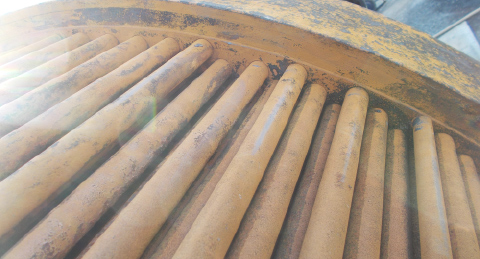
Nucleom was requested to conduct an external 3D long-range laser scan and subsequent deformation assessment on a tank on-site.
The tank suffered severe damage due to over pressurization, which ruptured a segment of the roof-to-shell joint, causing associated deformations around the surrounding roof and shell of the tank. This damage was evident from the ground, but the extent could not be quantified visually.
As a result, the client requested that Nucleom conduct an assessment to identify the severity and extent of damage that had occurred to the shell.
After conducting a visual inspection, we found severe and residual damages to the tank’s shell along the upper courses. However, laser scanning revealed that the damage was much more extensive than initially thought. The shell was deformed and exhibited out of tolerance out-of-roundness, which exceeded the allowable limit of API 653.
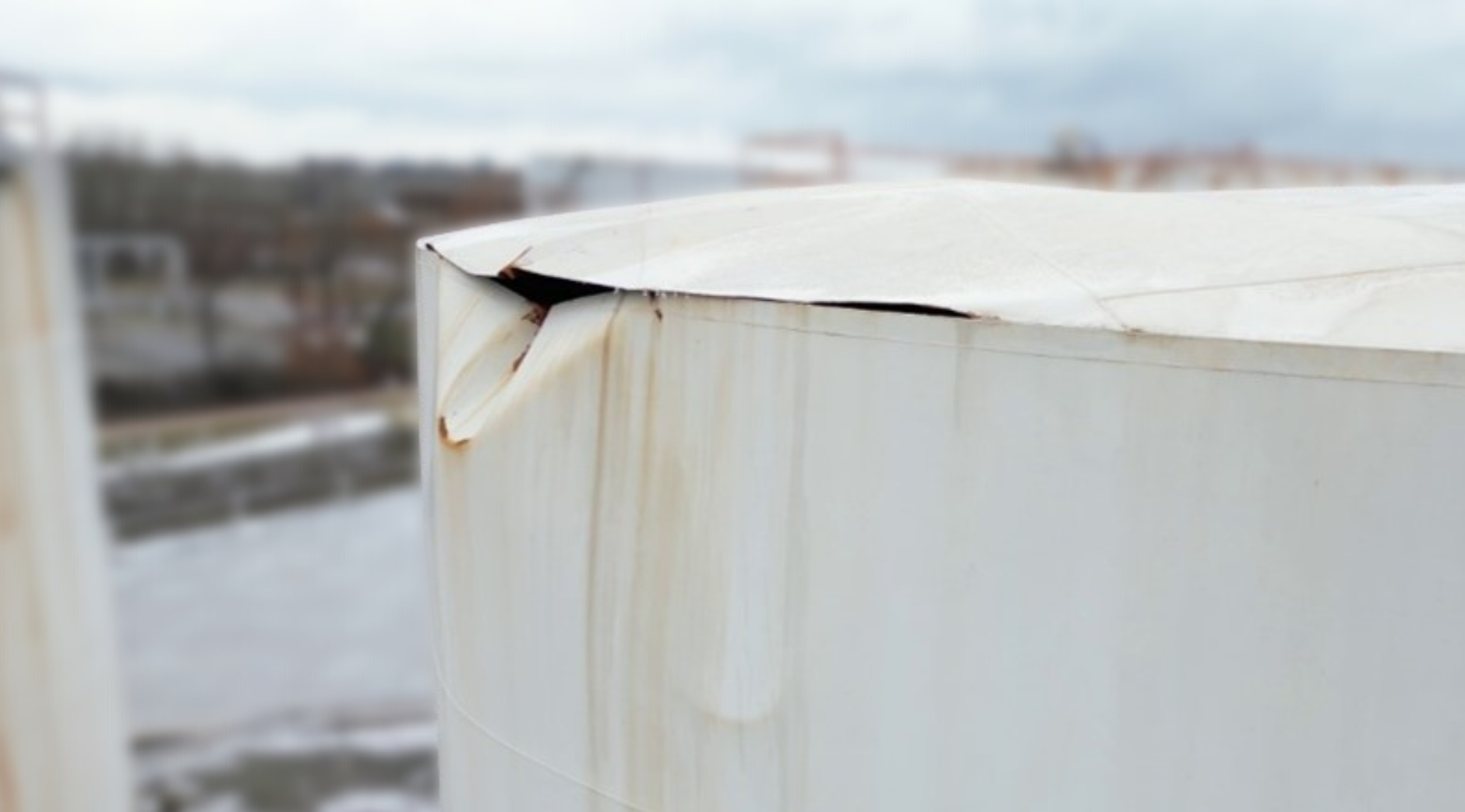
HTHA (High Temperature Hydrogen Attack or Hot Hydrogen Attack) occurs mainly in the oil and gas industry. It affects carbon and low alloy steels, often in hydrogen reactors, pipes and pressure vessels.
The HTHA phenomenon occurs in assets that operate with hydrogen and at high temperature. When hydrogen evolves at high temperatures, it is absorbed by metals, producing methane bubbles. These bubbles tend to grow over time, creating cracks and crevices. Thus, HTHA inspection is important in the prevention of risks associated with surface decarburization, cracks, and crevices.
Nucleom offers a new HTHA inspection method resulting from several years of research for early detection of the HTHA degradation. Our advanced solution is based on the principle that most of the imaging process is the result of multiple averaging processes that decreases the sensitivity of the inspection for small reflectors, such as HTHA. Our approach combines advanced imaging that enhances TFM performance by selecting coherent information. Then, when a suspicious area is identified, S-Matrix is locally applied to confirm the presence of HTHA.
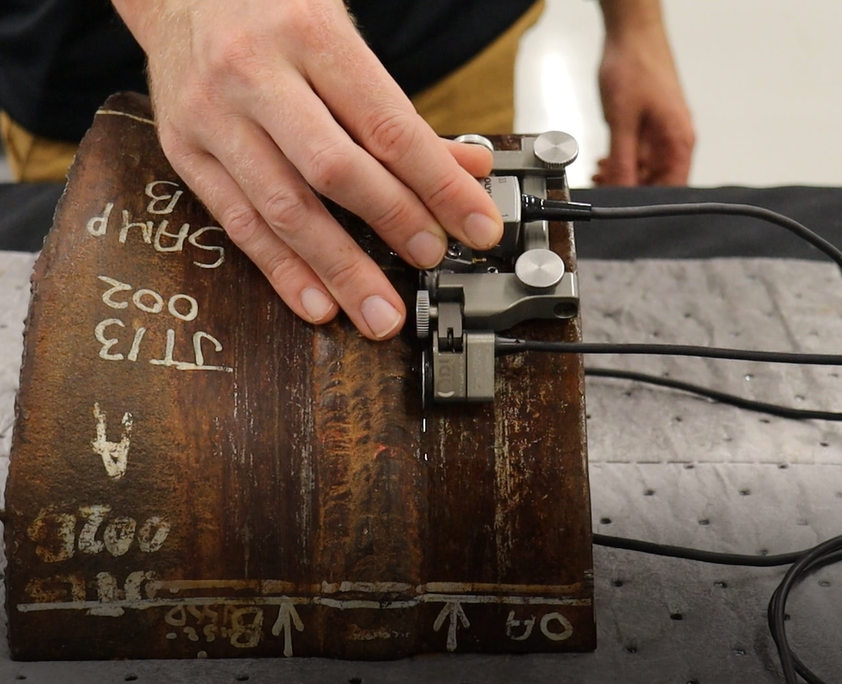
Corrosion-resistant alloys (CRA) have become a widely used material in oil and gas industry as carbon steel pipe cladding or as a filler material for girth welds to provide a safe, leak-free system for the full duration of a project.
Austenitic Stainless Steel (L316), Duplex Stainless Steel (22Cr) and Inconel are the most used CRA. All face similar ultrasonic inspection problems due to beam steering, splitting, refraction and absorption. To face such challenges, advanced UT methods based on TRL (Transmit-Receive Longitudinal) and DMA (Dual Matrix Array) techniques represent the best options.
 How can Nucleom’s NDT solutions can contribute to the success of your project in the petrochemical industry ?
How can Nucleom’s NDT solutions can contribute to the success of your project in the petrochemical industry ?Our team of experienced engineers and technicians will work with you to tailor a solution to your specific needs.